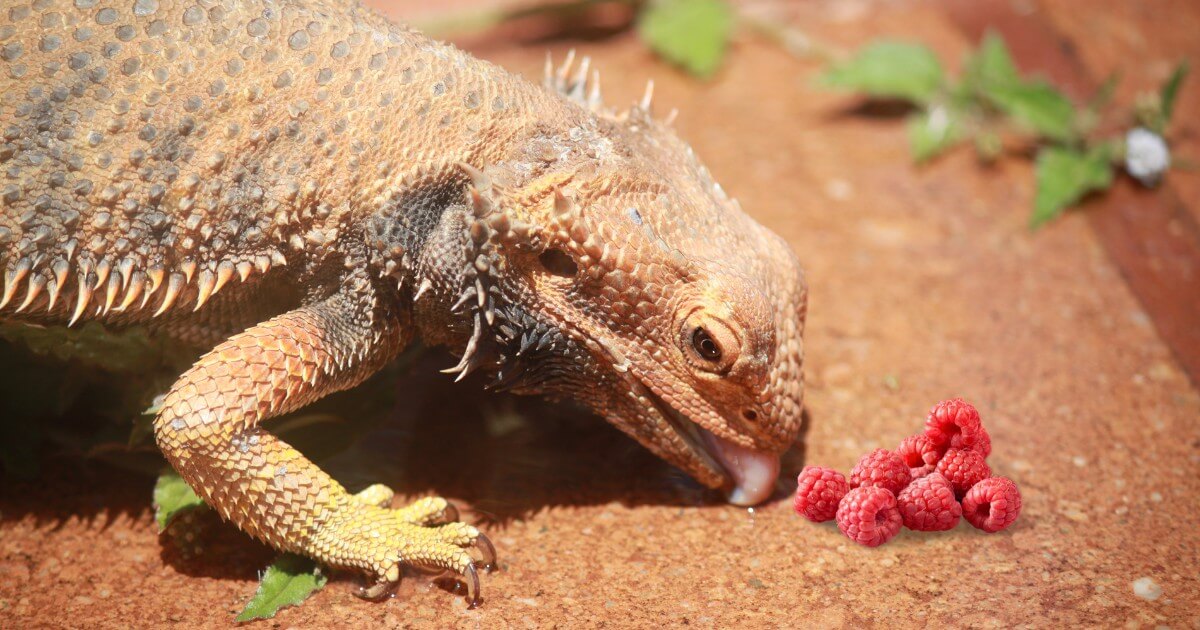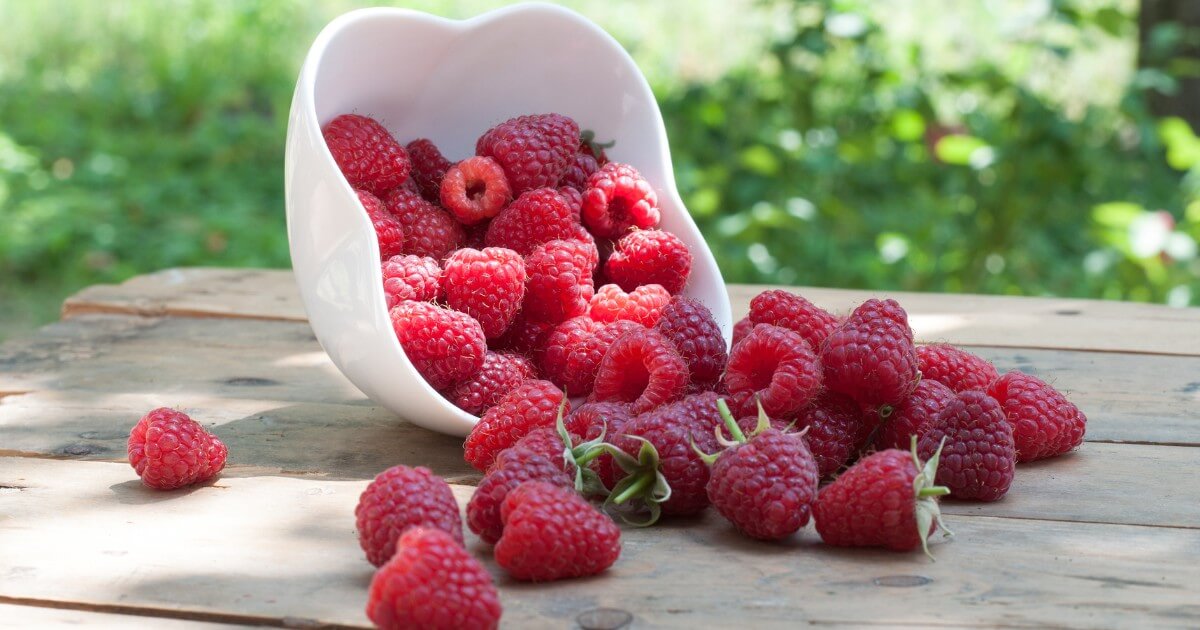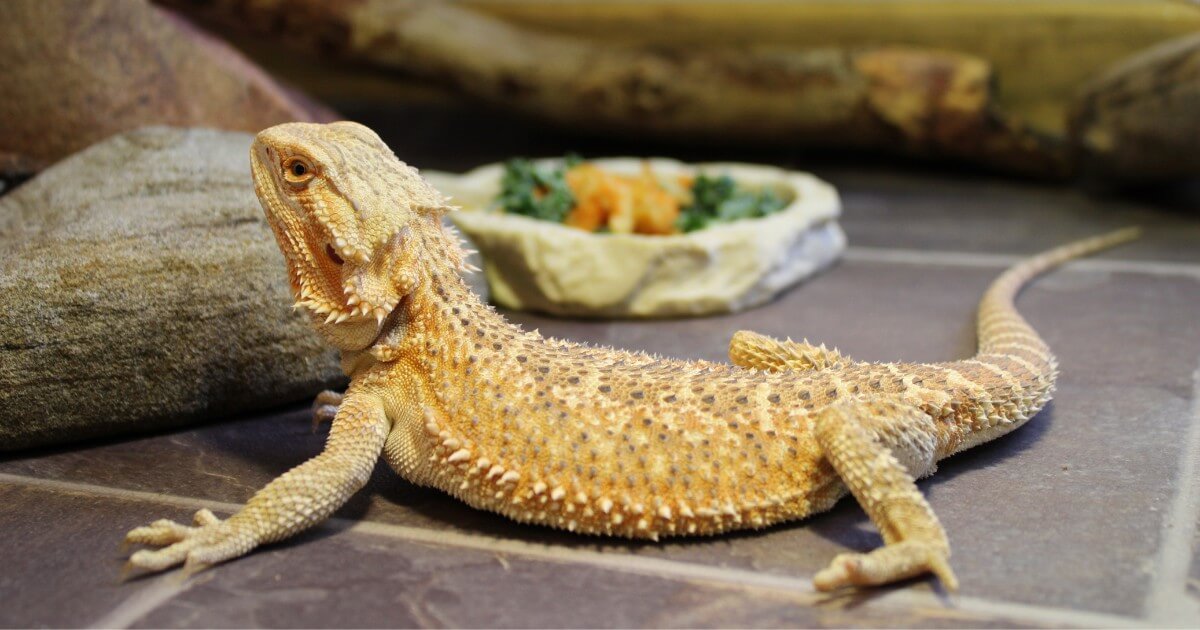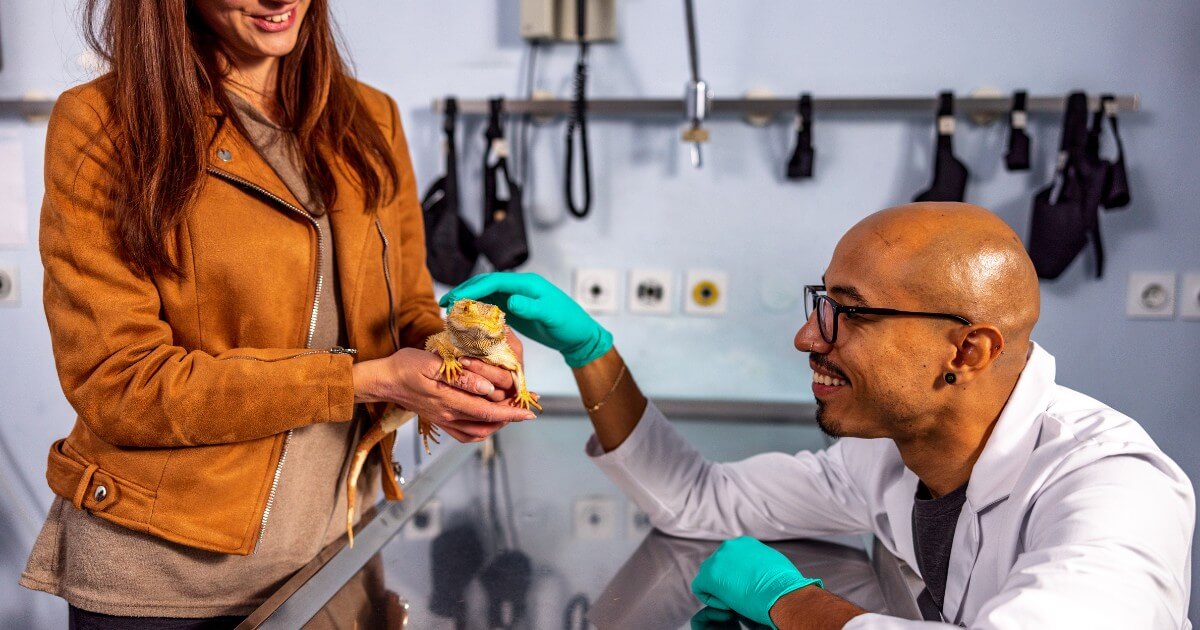
With their vibrant color and sweet taste, Raspberries can be a tempting treat for humans and animals. But can bearded dragons eat raspberries?
Bearded dragons have become increasingly popular pets thanks to their friendly nature, unique appearance, and relatively low maintenance.
As a bearded dragon owner, ensuring your scaly friend gets a well-balanced diet is crucial for their overall health and well-being.
With an array of fruits and vegetables to choose from, it can sometimes be challenging to determine which ones are best suited for your pet.
I get a lot of questions from other bearded dragons owners, for example, what fruits can bearded dragons eat? One fruit that often sparks curiosity is the raspberry.
But are they relevant sources for bearded dragon food?
In this guide, I will delve into the suitability of raspberries in a bearded dragon’s diet. Furthermore, explore their health benefits, and share some personal experiences and tips for incorporating them into your pet’s meal plan.
Can Bearded Dragons Eat Raspberries?
Bearded dragons can indeed eat raspberries, but it’s essential to remember that moderation is key.
You don’t need to worry about removing the seeds when feeding your bearded dragon raspberries. The seeds are safe for bearded dragons and will not cause any harm.
However, it’s essential to ensure that the raspberries are thoroughly washed before feeding them to your pet to remove any pesticides or contaminants.
Raspberries are packed with vitamins and minerals, making them a beneficial addition to your bearded dragon’s diet.
However, they should not replace the primary components of their meals, which should consist of a mix of vegetables, leafy greens, and insects.
For an interesting and informative article on the bearded dragon diet, check out this comprehensive guide from VCA Animal Hospitals.
Tips from my Experiences:
- Start with small portions: When introducing raspberries to your bearded dragon’s diet, begin with a small amount to see how they react. Some bearded dragons may not be fond of the fruit or could have a sensitive digestive system.
- Mix with other fruits and vegetables: Combine raspberries with other fruits and vegetables that are safe for bearded dragons to create a colorful and exciting salad for your pet. Some excellent options include collard greens, bell peppers, and mango.
- Monitor your bearded dragon’s reaction: After feeding raspberries to your bearded dragon, keep an eye on their behavior and bowel movements to ensure they’re not experiencing any adverse effects. If you notice any changes in their health or demeanor, consult your veterinarian.
- Serve fresh and ripe raspberries: Be sure to provide your bearded dragon with fresh and ripe raspberries to ensure they are getting the most nutritional value from this treat. Avoid feeding them overripe or moldy raspberries, as these can cause digestive issues.
In conclusion, when offered in moderation, raspberries can be a delightful and nutritious treat for your bearded dragon.
Remember, constantly monitor your pet’s reaction and consult your vet if you have any concerns about their diet.
Are Raspberries Good for Bearded Dragons?
Health Benefits of Raspberries for Bearded Dragons
As a bearded dragon owner, I have found that raspberries provide several health benefits when offered as an occasional treat. Some of the key benefits include:
- Antioxidants: Raspberries contain antioxidants, which can help prevent cell damage and promote overall health in bearded dragons.
- Vitamins and minerals: These small berries are packed with essential vitamins and minerals, including vitamins C, E, and K, as well as potassium, magnesium, iron, and phosphorus.
- Hydration and water content: Bearded dragons need to stay hydrated, and raspberries can be an excellent source of water for them. This can be particularly beneficial for bearded dragons that are reluctant to drink from a water bowl.
- Natural sugars as a treat: Raspberries contain natural sugars that can make them an appealing treat for bearded dragons, but it’s essential to offer them in moderation due to their sugar content.
Potential Risks When Feeding Raspberries to Bearded Dragons
While raspberries can be a nutritious treat for bearded dragons, there are a few potential risks and concerns to be aware of:
- Oxalate content and calcium absorption: Raspberries contain oxalates, which can bind to calcium and reduce its absorption. This is not a significant concern when raspberries are fed occasionally, but it’s essential to maintain a balanced diet with other calcium-rich foods.
- Phosphorus content and calcium-phosphorus ratio: A proper calcium-phosphorus ratio is crucial for bearded dragons’ bone health. Raspberries contain more phosphorus than calcium, which can disrupt this balance if fed too frequently.
- Sugar content and potential weight gain: As mentioned earlier, raspberries contain natural sugars that can contribute to weight gain if fed too often. Ensure that raspberries and other fruits are offered in moderation to maintain a healthy weight for your bearded dragon.
- Overhydration: While raspberries can provide hydration for bearded dragons, it’s essential to monitor their water intake to prevent overhydration. Offer a balanced diet that includes other vegetables with lower water content to ensure proper hydration levels.
By being aware of potential risks and offering a balanced diet, you can ensure your scaly friend stays happy and healthy.
How to Safely Feed Raspberries to Your Bearded Dragon
As a bearded dragon owner, I understand the importance of feeding your scaly friend a well-balanced diet.
Here are some tips and experiences from many years of owning and caring for bearded dragons.
Recommended Frequency of Feeding Raspberries to Bearded Dragon
Raspberries should be offered as an occasional treat, not as a staple food in your bearded dragon’s diet.
I suggests feeding raspberries to your bearded dragon once every 1-2 weeks to ensure they receive a balanced diet with a variety of other fruits, vegetables, and insects.
Selecting Fresh, Organic Raspberries for Bearded Dragons
Choose fresh, organic raspberries for your bearded dragon to minimize the risk of pesticide exposure.
Furthermore, I recommends purchasing raspberries from a reputable source or growing them in your garden if possible.
Additionally, when selecting raspberries, look for brightly colored, plump berries that are free from mold or damage.
Cleaning and Preparation of Raspberries for Bearded Dragons
Before feeding raspberries to your bearded dragon, I suggest you prepare them properly.

Serving Size and Combining with Other Bearded Dragon Foods
Depending on their size and age, offer your bearded dragon 1-2 raspberries per serving.
Furthermore, combine raspberries with other fruits, vegetables, and insects to provide your bearded dragon with a nutritious meal.
Additionally, you can check Reptile Magazine. This reputable magazine offers valuable information on bearded dragon nutrition and proper diet planning.
By following these guidelines, you can safely feed raspberries to your bearded dragon while ensuring they receive the nutrients they need for a happy, healthy life.
Raspberries for Bearded Dragons: Seeds and Considerations
Raspberry seeds are small and generally considered safe for bearded dragons to consume.
Most beardies can easily digest the seeds without any issues. In fact, these seeds can provide some additional fiber, which may be beneficial for their digestive health.
Potential Risks Associated with Seeds
While raspberry seeds are generally safe, some bearded dragons may have trouble digesting them, leading to potential impaction or discomfort.
This risk is relatively low but should be taken into consideration, especially for younger or smaller bearded dragons.
Tips from an Experienced Bearded Dragon Owner
I never had any issues feeding his bearded dragon raspberries with seeds.
However, I advise monitoring your pet closely after offering raspberries with seeds for the first time.
If you notice any signs of discomfort or digestive issues, it may be best to remove the seeds before feeding raspberries in the future.
To Remove or Not to Remove Seeds
Based on the experiences of other bearded dragon owners and the relatively low risk associated with raspberry seeds, removing them before feeding is generally unnecessary.
However, if you have concerns or notice any adverse effects in your bearded dragon after consuming raspberries with seeds, you can choose to remove the seeds as a precautionary measure.
Other Fruits and Vegetables for Bearded Dragons
In addition to raspberries, bearded dragons can benefit from a wide range of fruits and vegetables.
A Variety of Nutritious Options
A varied diet helps ensure they receive all the necessary vitamins, minerals, and other nutrients for optimal health.

Some suitable options for bearded dragons include:
- Leafy greens: collard greens, dandelion greens, mustard greens, and turnip greens
- Vegetables: bell peppers, carrots, green beans, squash, and zucchini
- Fruits: apples, bananas, blueberries, mango, and strawberries
Refer to this comprehensive list from Reptiles Magazine for more information on the best fruits and vegetables to include in your bearded dragon’s diet: Reptiles Magazine: Bearded Dragon Food List
Foods to Avoid for Bearded Dragons
While many fruits and vegetables are safe for bearded dragons, some can be harmful and should be avoided.
These foods can cause health issues due to their high oxalate content, acidity, etc.
Some examples of foods to avoid include:
- Avocado
- Lettuce
- Spinach
- Rhubarb
- Citrus fruits (e.g., oranges, lemons)
For a more detailed list of foods to avoid and explanations of why they should not be fed to bearded dragons, visit this helpful resource from the Veterinary Centers of America: VCA Hospitals: Feeding Bearded Dragons
FAQ: bearded dragons eating raspberries
Yes, bearded dragons can eat raspberries in moderation as part of a well-balanced diet. Raspberries offer a variety of nutrients and health benefits but should be fed as an occasional treat rather than a staple food.
Raspberry seeds are generally safe for bearded dragons. However, monitoring your pet for any signs of discomfort or digestive issues after consuming them is essential. If you notice any problems, consider removing the seeds before feeding raspberries to your bearded dragon.
Raspberries should be fed as an occasional treat, not more than once or twice a week. Providing a variety of fruits and vegetables in your bearded dragon’s diet is essential for their overall health and well-being.
Conclusion: Can Bearded Dragons Eat Raspberries?
In conclusion, it is clear that raspberries can indeed be a nutritious and enjoyable treat for bearded dragons, as long as they are fed in moderation and as part of a well-rounded diet.
Although raspberry seeds are generally safe for consumption, it’s crucial to keep an eye on your pet for any signs of discomfort or digestive issues after they eat raspberries.
Moreover, it’s essential to prioritize variety in your bearded dragon’s diet, incorporating an array of fruits and vegetables to ensure they receive all the necessary nutrients for optimal health.
Finally, if you have concerns about your bearded dragon’s diet or overall health, don’t hesitate to consult a vet.

By being attentive and proactive, you can help your scaly companion thrive and live a happy, healthy life.






